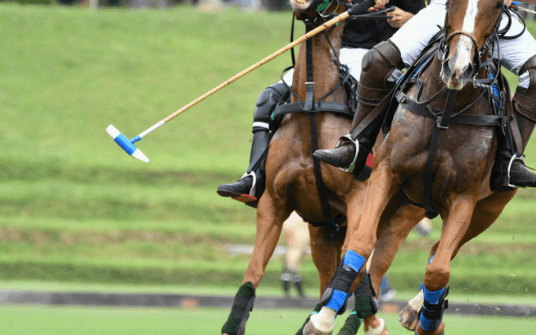How can one choose a horse for polo?

Polo, known as the “Sport of Kings,” is as much about skill and strategy as it is about the agility and speed of the horses, often referred to as “polo ponies.” Choosing the right horse for polo is crucial for both the safety and success of the player. This guide will walk you through the key factors to consider when selecting a polo horse.
Understanding the Polo Pony
Firstly, it’s important to note that despite being called ‘ponies’, polo horses are actually full-sized horses. The term ‘pony’ is traditionally used in polo from its origins.
Characteristics of a Good Polo Pony
Agility and Speed: A polo pony must be quick to start and stop, and agile enough to maneuver swiftly.
Stamina and Strength: Polo is demanding, so the horse must have the endurance to sustain energy levels throughout the game.
Temperament: A calm, responsive, and trainable temperament is essential for the fast-paced and often unpredictable nature of polo.
Size: Typically, polo ponies stand between 15 and 15.3 hands. This size offers a good balance of speed and manageability.
Choosing Your Horse
1. Assess Your Skill Level
Beginners should look for a seasoned, well-trained horse that can compensate for their learning curve.
Advanced players might opt for a younger, more agile horse that they can train to suit their specific playing style.
2. Evaluate Training and Experience
A horse with polo experience is preferable. They should be familiar with the game’s dynamics, such as being comfortable with the mallet and ball.
3. Conduct a Physical Examination
Check for soundness of limbs, overall health, and fitness. A horse with a history of lameness or chronic health issues might not be suitable.
4. Test for Responsiveness and Speed
Ride the horse to assess its speed, agility, responsiveness to commands, and comfort with polo maneuvers.
5. Check Temperament and Behavior
Observe the horse’s behavior in various situations, including its interaction with other horses, its reaction to the mallet and ball, and how it handles stress.
6. Consider Age and Longevity
While younger horses have longer playing careers ahead, older horses might offer the advantage of experience and stability.
7. Seek Professional Advice
Consult with experienced polo players, trainers, or equine specialists who can provide valuable insights and advice.
After the Purchase
Training and Care
Regular training and a proper care routine are essential. This includes a suitable diet, regular veterinary check-ups, and ample exercise.
Polo-specific training will help the horse adapt to the game’s requirements and improve its performance.
Building a Relationship
Spend time with your horse to build trust and understanding, which is vital for a successful partnership on the field.
Conclusion
Choosing the right polo pony is a critical decision that requires careful consideration of various factors, including the player’s experience, the horse’s ability, temperament, and health. With the right choice and proper care, a polo pony can be a valuable asset to any player, enhancing the thrill and enjoyment of the game.
